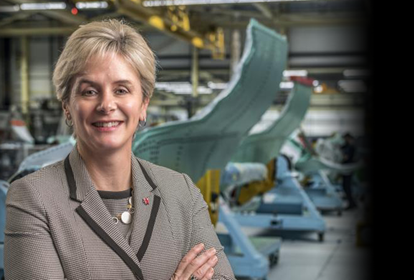The industry has realised that education and experiences are key. Females need to see that manufacturing isn’t all about oil, dirt, metal and men – they need to experience what it is actually like.
In fact, it’s so far removed from how things were back in the 90s. Technology is partly to thank for this. Innovations, and a greater demand for skills that just weren’t needed back then, are opening up opportunities for women. Technology can make factory environments more appealing, and routes to career progression are now numerous and varied.
BAE Systems, of which I am Managing Director for Europe & International Programmes within our Air Sector, is helping to change preconceived notions of manufacturing through graduate schemes and apprenticeships.
Government-backed programmes like Made Smarter are shaping the future too, showing how central digital technologies are to growth and efficiency. Their structure alone demonstrates how core women are – our monthly meetings are held by myself (the Chair) and Donna Edwards (the Programme Director), with an approximate 50/50 blend of females and males sitting at the table.
The programme’s North West pilot is a fantastic opportunity for SMEs in the region, giving them the support and incentive they need to upskill their workforce and increase their technology usage. Made Smarter gets to understand the particular needs of an organisation, and tailors their training and resources to help them implement digital tools for long-term transformation.
Manufacturing has a fantastic future. It’s clear to see that all diversity will drive amazing developments in our industry – not just gender diversity.






